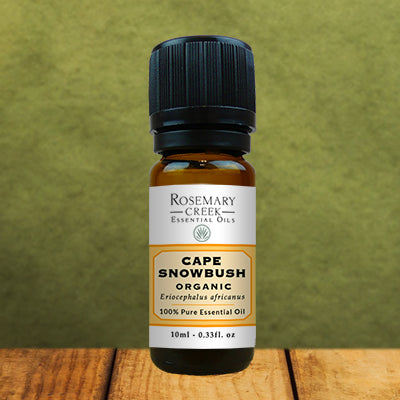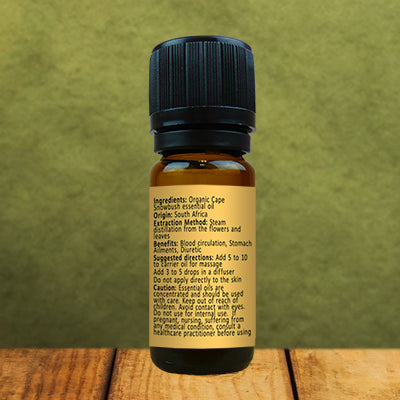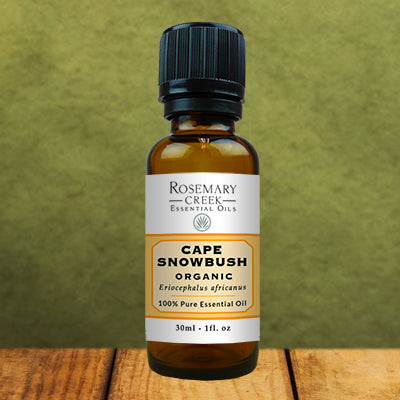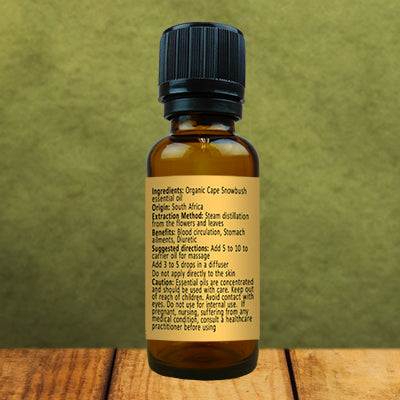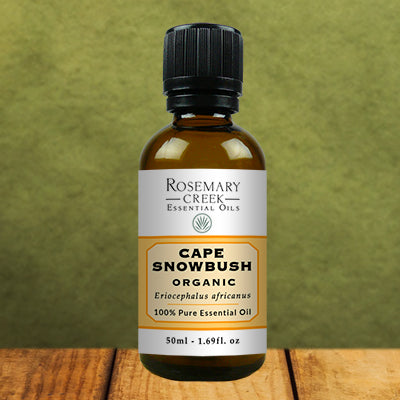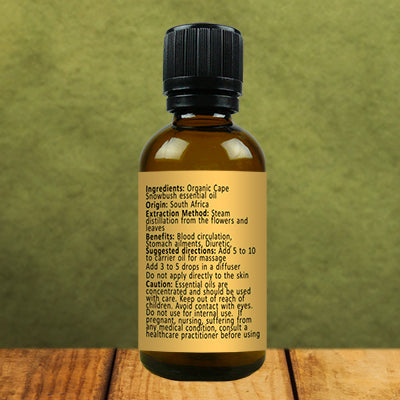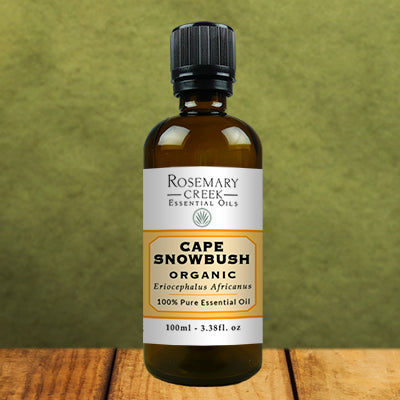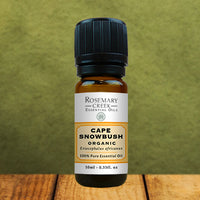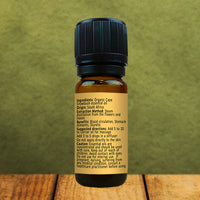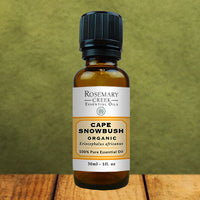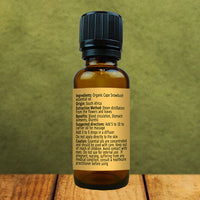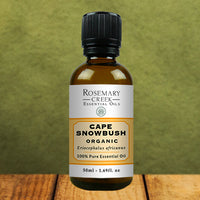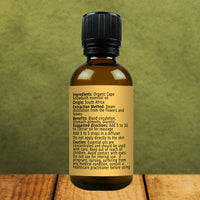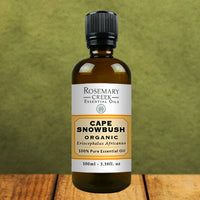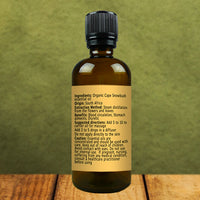Organic Cape Snowbush essential oil
-
Product Info
The Cape Snowbush (Eriocephalus Africanus), also referred to as wild or African rosemary, is a dark green evergreen shrub native to the Western Cape of South Africa. The name “Snowbush” derived from how this plant fills with small white flowers each spring, appearing as though it is covered in snow. Overall, this sweet, floral-scented shrub with camphor undertones (very similar to Cape Chamomile) is not only beautiful on the surface, but produces a powerful essential oil from the blossoms of the plant, which has been leveraged to improve life quality since the 17th century.
Cape Snowbush Stimulates Blood Circulation
In conjunction with taking vitamins to boost blood flow naturally, cape snowbush can act as a robust agent to improve blood circulation throughout the body. This fine circulatory tonic is able to relieve stagnation and promote circulation within the abdomen, arms, hands, and legs through its energetic circulation properties. Cape Snowbush works efficiently on edemas, all you would have to do is simply mix a few drops of cape snowbush essential oil with your preferred carrier oil, rub it into the skin, and let it soak to reap the circulatory benefits.
Treats Stomach Ailments
Stomach ailments caused by various digestive tract challenges are something that cape snowbush essential oil can optimally remediate. Being the strong antiseptic, anti-inflammatory, and antispasmodic that it is, cape snowbush is able to protect the body from viral infections, act as an effective decongestant, and relieve painful muscle spasms within the digestive tract. Furthermore, cape snowbush essential oil is also a carminative, which means it holds the ability to expel unwanted gases from the body and prevent it from causing internal abdominal discomfort. To apply, gently rub diluted cape snowbush essential oil over the stomach and intestinal area, or inhale the fragrant scent using a diffuser.
Natural Diuretic
Cape snowbush essential oil is a well-known diuretic that naturally influences urination. Though this may not be something that most people worry about unless there are noticeable side effects such as bloating or discomfort, it is still a critical aspect of healthy living. Overall, urinating is vital to ridding the body of harmful toxins, uric acids, and excess salts. With that being said, if there are signs of irregularity, utilizing cape snowbush essential oil is a great way to organically support the body in cleansing itself. In conjunction with this, those who suffer from water retention or oedemas can find quick relief through diluted topical application.
Chemical Composition of Cape Snowbush essential oil
As part of the Monoterpenes, Monoterpenols, and Oxides chemical families, cape snowbush essential oil is filled with a long list of harmonizing elements that give it its medical and therapeutic features. Though the full composition is quite extensive, the major compounds include:
- Linalyl acetate
- Sabinene
- Cymene
- 1,8-cineole
- 4,11-eudesmanediol
For some more insight, Sabinene is the compound that gives cape snowbush essential oil its digestive aiding abilities and supports the coinciding inflammatory, anti-fungal, antimicrobial, antioxidant, and antibacterial properties as well.
Suggested directions.
The best way to use the Cape Snowbush essential oil is topically. To create a massage oil, add 5 to 10 drops to a carrier oil, such as coconut oil or almond oil.
For a diffusion use, add 3 to 5 drops in a diffuser.
Do not absorb this essential oil orally.
Cape Snowbush essential oil mixes very well with lavender, sandalwood, peppermint, frankincense, citrus, ravintsara and tea tree essential oils.
Additionnal information:
Botanical Name: Eriocephalus Africanus
Common names: Wild Rosemary, African Rosemary, Kapokbos
Extraction method: Steam distillation
Color: Colorless to light yellow
Consistency: Thin
Origin: Organic
Country of origin: South Africa
Botanical family: Asteraceae
Plant part used: Leaves and Flowers
Odor: Sweet, Floral, HerbaceousCaution:
Essential oils are concentrated and should be used with caution. Keep out of reach of children.
Avoid contact with the eyes.
Do not ingest. This essential oil should not be taken internally unless recommended and supervised by someone who is qualified.
Do not use if pregnant, nursing, elderly and for children under 7 years of age. If suffering from any medical condition, consult a healthcare practitioner before using.
Do feel free to ask for further information and applications.
DISCLAIMER: Essential oils are not meant to cure diseases and illnesses. They may ease some health problems and bring comfort. We suggest you consult a physician and do your own research for each essential oil that interests you.
To get more safety information, read our article about the risks of using essential oils.
-
Brand:
Rosemary Creek Essential Oils
-
Collection:


